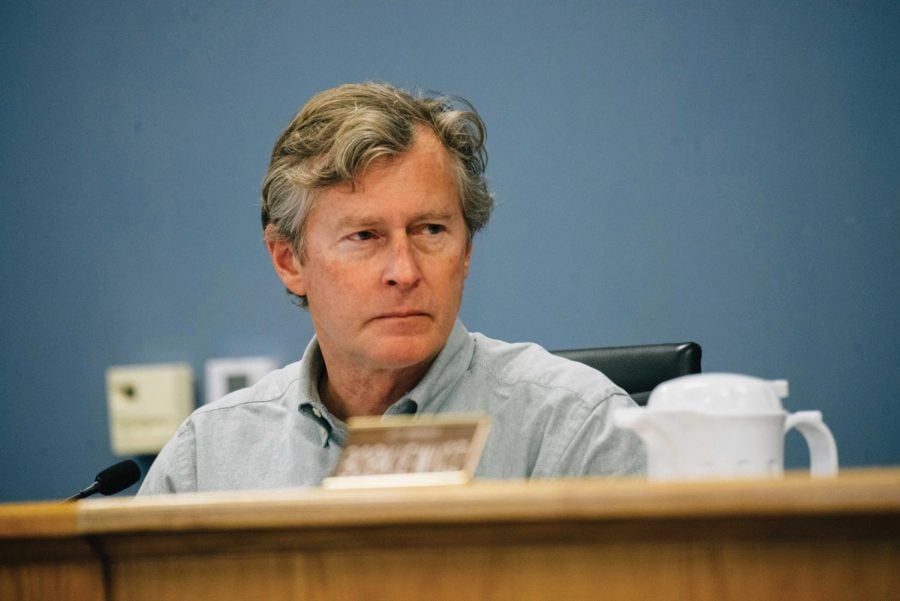Aldermen vote to raise sales tax
Noah Frick-Alofs/Daily Senior Staffer
Ald. Donald Wilson (4th). Wilson voted in favor of an ordinance to raise sales taxes in Evanston; the ordinance passed 5-4.
September 24, 2019
City Council on Monday barely passed a vote to raise Evanston’s sales tax, leaving aldermen deflated as the city approaches upcoming budgetary discussions.
Aldermen voted 5-4 in favor of an ordinance to raise the sales tax for retail goods from 1 percent to 1.25 percent. The ordinance, expected to bring an additional $1.5 million in revenue when it goes into effect Jan. 1, puts Evanston’s sales tax rate in line with Chicago and many of the suburbs on the city’s northern border, while raising it above many of the western suburbs and on the North Shore.
After deciding to stabilize the city’s finances in April, City Council requested staff prepare an ordinance to raise the sales tax at an Aug. 5 meeting.
A report from the city’s chief financial officer showed revenues from several sources, including sales tax, were on track to meet 2019 budget projections. However, the same report anticipated heightened expenses for 2020, including an additional $1.6 million owed for union contracts.
Alds. Judy Fiske (1st) and Tom Suffredin (6th) led the opposition to the tax increase, having voted against the introduction of the ordinance at the council’s Sept. 9 meeting. Both aldermen argued higher taxes would drive shoppers away from Evanston. Suffredin said the tax increase is “regressive.”
“I won’t vote to nickel-and-dime our residents like this,” Fiske said.
Fiske said council had to think of “holistic” solutions to revenue concerns and said council would have raised property tax revenue if it had approved proposals like a development on Chicago Avenue.
Ald. Ann Rainey (8th) called for greater fiscal responsibility by the council and criticized the burden the ordinance placed on retailers.
“We can’t keep identifying ways to spend money without identifying ways to raise revenue,” Rainey said.
Rainey said City Council needs to put pressure on the city’s wealthy professional residents.
Ald. Cicely Fleming (9th) did not oppose the sales tax directly, but said she wanted to see revenue from the ordinance earmarked for affordable housing or other underfunded measures.
“I am just not comfortable with handing a blanket check to the general fund,” Fleming said, her last public comment before voting nay on the ordinance.
Supporters of the ordinance spoke little during debate, with Alds. Donald Wilson (4th) and Melissa Wynne (3rd) insisting that the tax increase was necessary.
“We’re not bad people, we’re not trying to hurt people, we’re just trying to do the right thing,” Wilson said, adding he would work on decreasing the city’s additional levy on alcohol to counteract the effect of the ordinance on restaurateurs.
Both Wynn and Wilson argued the city did not have other options for raising revenue, citing property tax increases and, in Wynn’s case, parking fees as more harmful to residents.
“At least someone else who’s driving in from Highland Park is gonna pay for this,” Wynne said.
Email: joshuairvine2022@u.northwestern.edu
Twitter: @maybejoshirvine



